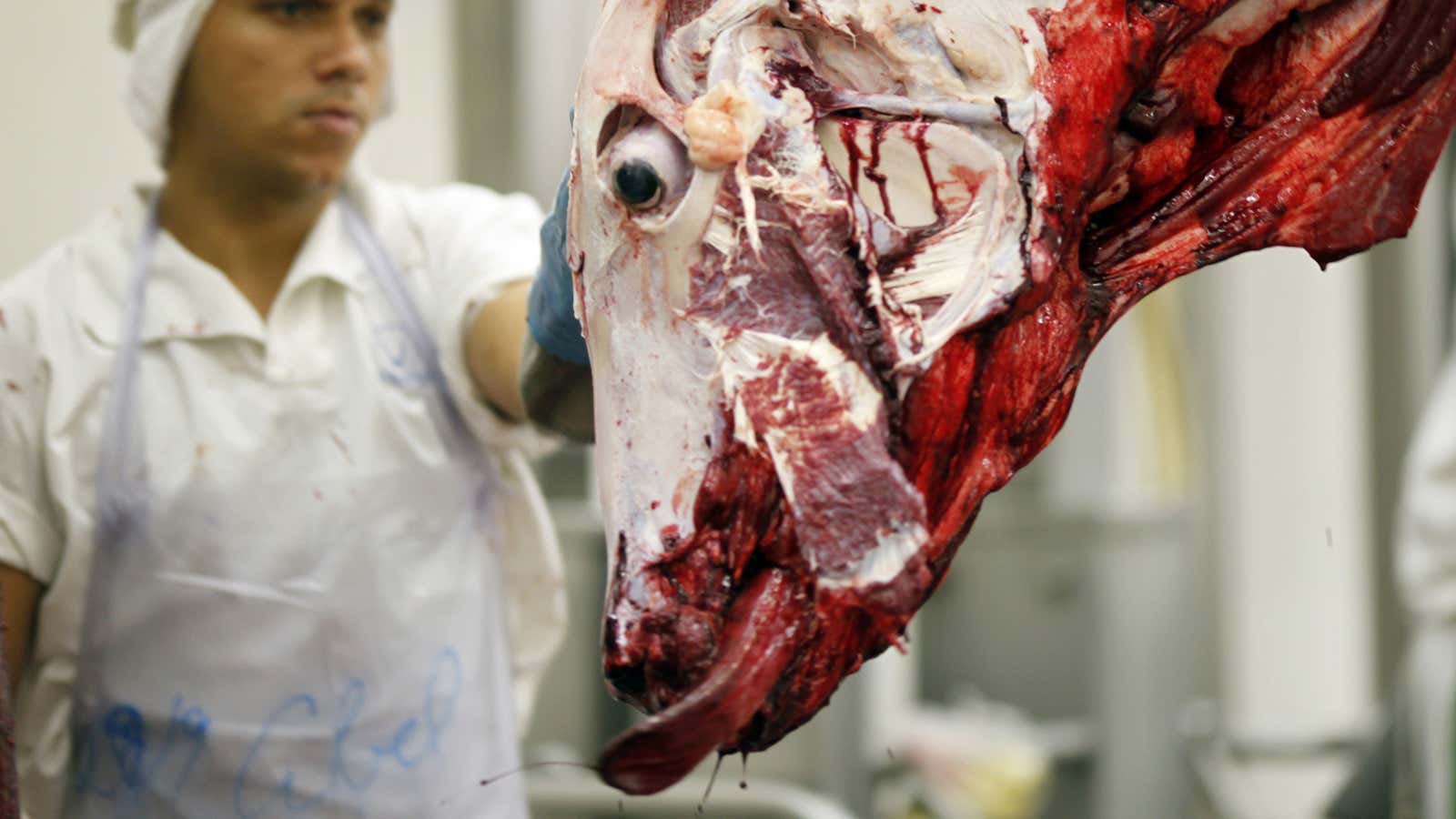Nestlé has warned against eating some of its Philly Steak & Cheese Hot Pockets, since “a small quantity” of the beef inside is subject to a US Department of Agriculture recall. The culprit is Rancho Feeding Corporation, a California slaughterhouse that ”processed diseased and unsound animals,” according to the US Department of Agriculture’s Food Safety Inspection Service (FSIS), which warned there is a “reasonable probability that the use of the product will cause serious, adverse health consequences or death.”
Not the sort of rhetoric to whet one’s appetite for microwavable meaty goodness. But there may be more at, er, stake here than possibly toxic Hot Pockets. In addition to dairy farms and food giants like Nestle, Rancho Feeding also serves small, local, sustainable ranchers like Northern California’s Freestone Ranch, whose website says it raises grass-fed, antibiotic- and hormone-free cattle in an “ecologically sound” way.
In a reversal from earlier releases pegging the recall to the lack of inspection, FSIS now says Rancho Feeding’s beef came from “diseased and unsound” cattle. Though FSIS declines to specify what this means—and it did not respond to requests for comment—it could refer to the slaughter of “downer cattle,” the industry’s euphemism for cows that are unable to walk into a slaughterhouse due to broken bones, diseases, or the fact that they’re already dead.
So far no one’s reported any actual illnesses after consuming the beef. That’s especially weird given that the recall is for every ounce of beef that Rancho Feeding processed in 2013, all 8.7 million pounds of it. Companies like Rancho Feeding are supposed to have not one but two USDA inspectors. So how did Rancho Feeding kill cattle for 371 days without any? It may well be Rancho Feeding’s fault. Then again, by the USDA’s own admission (pdf) in June 2013, the FSIS’s staff is overworked and often undertrained.
How did the ever-helpful US Congress respond? It slashed $19 million from FSIS’s $1 billion budget.
